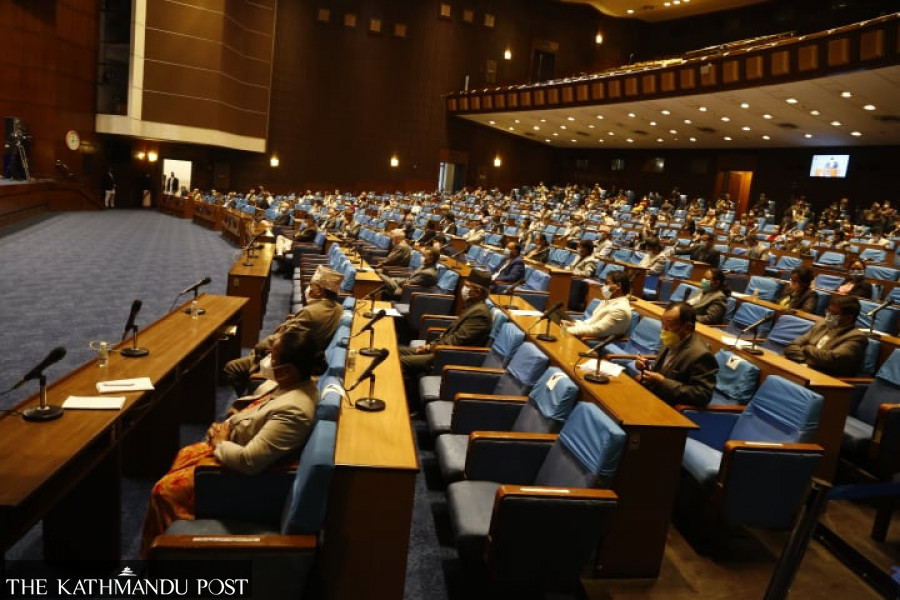Editorial
Mute representatives
Clueless about the day’s business in the House, lawmakers are hardly keen to discuss the bills.
The yardstick of any credible democracy is its ability to showcase a healthy functioning Parliament where lawmakers debate and discuss the bills tabled there to ensure that policy gaps in the country are adequately taken care of. But such is the callous attitude towards drafting and approving the bills that despite having passed more than 100 pieces of legislation so far, the current federal Parliament did not see fit to follow the tried and tested method of discussing the proposed laws with the public.
In many functioning democracies, the pre-legislative, legislative and post-legislative procedure is routinely followed. But far from following the standard procedure, Nepal’s Parliament, infamous for being in a prorogued state for long periods at a time, hastily ratifies the bills without due consideration, and more importantly, without considering their possible ramifications in the future. Such oversight was seen in the case of awarding a lease on a property belonging to the Nepal Trust by the then KP Sharma Oli government to the Yeti Group.
While the original Nepal Trust Act categorically forbade the government from leasing properties for tourism and business venture purposes, a tweak in the amendment to the Act, which allowed leasing for tourism and business venture purposes, was soundly overlooked by the House and quickly ratified in weeks without due deliberation. The same lawmakers later condemned property leasing to the Yeti Group, which they had voted to approve, courting unnecessary controversy. If the lawmakers had any reservations about the bill’s amendment, it should have been clarified in the House through the procedures available to them. It serves no purpose to lock the stable doors after the horse has bolted.
Most lawmakers are utterly oblivious of Parliament’s agenda, to begin with until the House meeting commences. With no obvious clue of the day’s business in the House, the parliamentarians show little enthusiasm in discussing the bills. It is one thing to have timely information about the proceedings in the case of the Yeti Group. It also points to the fact that the lawmakers themselves spend precious little time going through the details of the bills, let alone discussing them. It is astounding even to consider that laws relating to national interest can be endorsed without the process of meaningful deliberation.
Another sham act can be seen practised when the ruling party’s lawmakers refuse to provide a critical review of bills introduced in the House by the government. To voice concern may be seen as going against the party directives, and perhaps the lawmaker may be branded as a turncoat. But such acts of petty politics rob the representatives of the provision of faithful service—which should be towards the benefit of the nation and the people they purport to serve. Going above and beyond the call of party politics also provides for a healthy consultative environment and offers a fertile ground for democracy to thrive and prosper constructively.




 10.12°C Kathmandu
10.12°C Kathmandu













